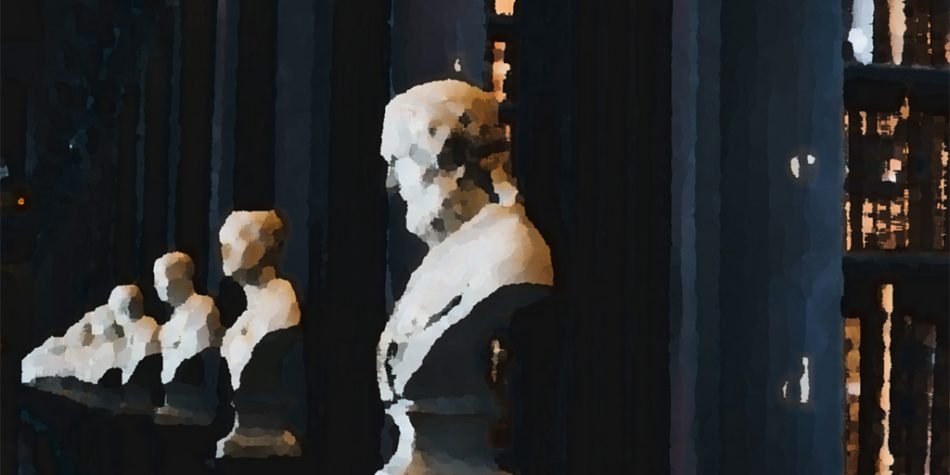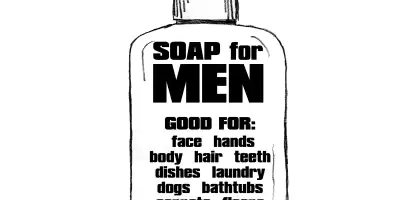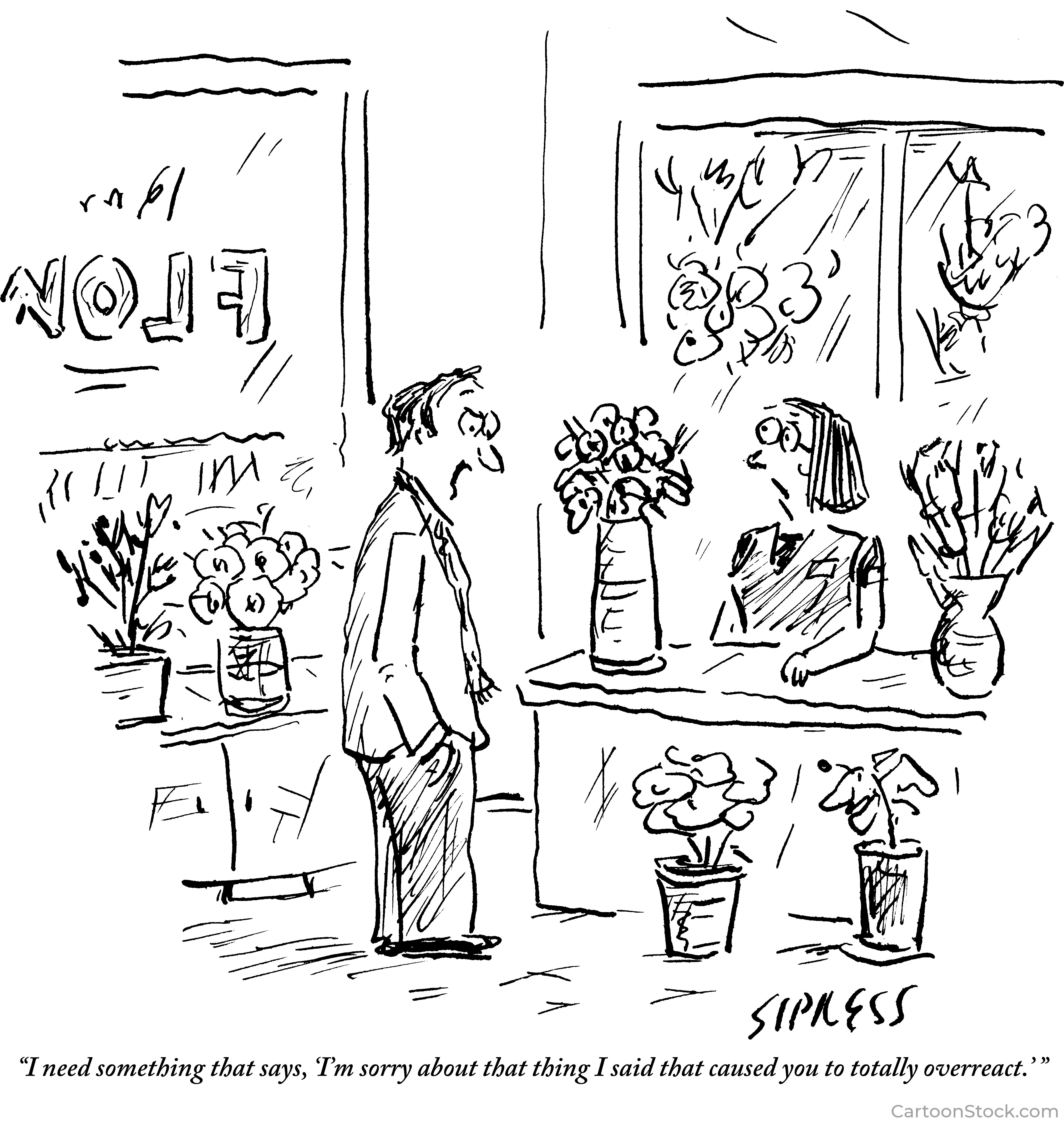Nathaniel Givens’s thought-provoking article #Nevertrump; #Alwaysliberalism captured a lot of the ambiguity and anguish I have felt over the upcoming presidential election. Givens expertly describes the rise of the illiberal right and explains why an empowered illiberal right is particularly dangerous because of its effectiveness in wielding the levers of power. I share his concern about growing illiberalism on the right. But I am both more skeptical of the ability of the illiberal right to effectively wield the levers of power and far less sanguine than Givens about the likelihood that the illiberal left will take the reins of power.
To understand my concern, we need to talk about something that Givens does not discuss in detail in his article, namely the administrative state and its impact on the rule of law.
When I use the term liberalism, I am using it as Givens defines it here:
So liberalism, then, is both a set of ideals to which we aspire and a set of institutions and norms intended to implement, at least partially, those ideals. The ideals are pluralism and tolerance, the dream that different people can live together in peace despite their differences. The institutions and norms to instantiate this dream (even imperfectly) include an emphasis on rule of law (especially Constitutional law) that privileges process over outcomes, along with specific civil liberties that are enshrined in both law and custom, and finally an accompanying culture that regards peaceful disagreement and voluntary rule-following as civic virtues.
Givens describes several very important facets of liberalism:
- Pluralism and tolerance
- The rule of law and process over outcomes
- The protection of civil liberties
- A culture of peaceful disagreement and voluntary rule-following
Givens gives attention to the first, third, and fourth of these items, but gives far less attention to the rule of law and the importance of impartial procedure as the protector of the liberal order.
In a liberal constitutional democracy, there is a central core of protected rights and liberties. These are held inviolable and can only be infringed upon for compelling reasons. Outside of that core, there are a variety of rights and interests that are subject to ordinary lawmaking and regulation. This is the arena and realm of politics.
One of the greatest forces pushing towards illiberalism is a feeling that the ordinary political process is futile or utterly pointless.
We all instinctively understand that the protection of rights and liberties is vital to the maintenance of the liberal order. If rights and liberties are subject to the whims of politics, then the liberal order quickly decays because neither side is willing to place core rights for consideration at the ballot box.
But it is perhaps less clearly understood how the rule of law and fair procedure is necessary for the perpetuation of the liberal order. In order to maintain the liberal order, it is vital that the deck is not stacked systematically in favor of either the left or the right, such that either side could expect its positions to actually be enacted into law if backed by sufficient popular will. In other words, it is vital that elections actually have consequences. One of the greatest forces pushing towards illiberalism is a feeling that the ordinary political process is futile or utterly pointless.
We are all aware of the logjam in the political process in the United States which has meant that the legislature has been completely incapable of actually legislating. Congress has shifted hands with increasing regularity in recent years, with very little legislative consequence.
So what happens in the absence of an effective legislative branch? What fills in the gaps when the legislature is unwilling or unable to act?
My argument is that through the rise of the administrative state the left has seized control of the levers of power in a largely illiberal fashion. It has taken advantage of the logjam in the legislative branch to push through a dramatic and very difficult to reverse expansion of the realm of government power and control. And unfortunately, this illiberal tendency is likely to only expand under a Biden administration.
Note that I am not talking about some kind of sinister or subversive deep state. I am merely talking about the ordinary workings of administrative agencies.
To give a few examples, during the Obama administration the executive branch through rulemaking or through even more informal policies attempted to 1) Impose a mandate that religious institutions such as the Little Sisters of the Poor provide contraception; 2) Protect DREAMERS and their families from deportation even though Congress refused to act; 3) Eliminate due process protections for students accused of sexual assault through a dear colleague letter; 4) Impose anti-Discrimination protections for LGBTQ+ individuals through an expansive reading of Title VII; 5) dramatically expand the Clean Water Act to extend federal jurisdiction over even puddles or small streams found on private property. This is a small sample and I could come up with many other examples.
Some of these policies are illiberal because they infringe upon civil liberties. But all are fundamentally illiberal because the fundamental policy decisions were made by unelected bureaucrats rather than representative bodies.
By and large, the right has either not been able or willing to wield the formal levers of the administrative state quite as effectively. Indeed, most of the Trump administration’s administrative actions have been largely defensive. The administration has tried, with middling success, to undo these previous actions. For instance, the administration effectively eliminated the contraceptive mandate for religious institutions but was forced to fight all the way up to the U.S. Supreme Court. Modest rollbacks of the Clean Water Act are ensnared in legal battles and will be for probably another couple of years. Thus far at least, the Trump administration’s administrative efforts have been rather meek and modest.
For someone concerned about growing illiberalism in the administrative state this election presents a unique dilemma. As Givens’ post explains, Trump has a fundamentally illiberal disposition regarding these rule of law issues. He frequently attempts to announce dramatic policy shifts via tweets. Recently, for instance, a controversy erupted over whether Trump’s tweets had the result of declassifying information. Even more alarmingly, he has attempted to weaponize the DOJ and even the foreign policy establishment for political ends—both of which are dangerous and illiberal violations of the rule of law.
And yet at the same time, there are many individuals in the Trump administration who are committed to rolling back the illiberal powers of the administrative state. Mick Mulvaney as head of OMB, in particular, has been quite aggressive in pushing agencies to 1) Propose the elimination of rules at the same rate as they propose new rules; 2) Stop relying on informal documents such as guidance letters; 3) Abstain from making aggressive claims of deference; 4) Closely follow the Congressional Review and send rules to Congress for review or approval. This rollback is fundamentally liberal in that it helps to ensure that only those laws that are enacted through an accountable process are enforced publicly. Some of these changes may be largely symbolic. But they are meaningful, especially if given another 4 years.
Biden as President seems unlikely to try to make policy via tweet
One additional wrinkle. It is entirely possible that this more liberal administrative approach might change in a second Trump term if he is emboldened by reelection. There are some areas where the Trump administration has been aggressively illiberal in its policymaking approach. In particular, in the realm of immigration law, the Trump administration has adopted quite radical shifts of immigration policy through the levers of the administrative state—from the family separation policy to changing the public charge rule to make it more difficult for those who might need to rely on public assistance to qualify for residency or citizenship. This illiberalism might spread to other federal agencies in a second term.
But my concern over such a shift is lessened by the fact that these same policies will be evaluated by Trump’s judicial nominees who are fundamentally committed to the rule of law and to the liberal procedural order. As Givens points out, Trump picks tend to be skeptical of executive overreach and willing to enforce the procedural safeguards that protect the rule of law from illiberal policymaking.
Joe Biden and his potential administration are mirror opposites of Trump and his administration. Biden himself is temperamentally more liberal or restrained on these issues. On the campaign trail, he has on occasion responded to questions by explaining that certain actions could not be done by executive action. Biden as President seems unlikely to try to make policy via tweet. He is unlikely to try to direct the DOJ to go after his rivals. By and large, he is likely to be more conservative and restrained than his predecessors in his own personal use of executive prerogatives.
On the other hand, his administration is likely to continue or even further the trends of the Obama administration. Many of the policy agenda items that Biden has proposed lend themselves to aggressive administrative action. For instance, Biden proposes requiring that religious adoption agencies conduct home studies for and place children with LGBTQ+ couples. This could be done by regulation or through more informal means such as executive order or guidance letter. A Biden administration may attempt to take dramatic action on a whole host of topics from gun control to civil rights. This illiberalism of process is one of my biggest concerns with a Biden administration. His selection of Senator Kamala Harris who was during the 2020 primary season one of the biggest proponents of unilateral executive action only amplified my concern. And Biden’s judicial nominees are far less likely to be concerned about the procedural protections which safeguard the liberal order.
This is the dilemma that this #nevertrump and #alwaysliberalism voter faces with this upcoming election. Do I vote for the reelection of the least “liberal” President of our lifetime who has incidentally had one of the more “liberal” administrations from the perspective of procedural safeguards and the rule of law, or do I vote for the President who is temperamentally far more “liberal” but likely to preside over a deeply “illiberal” administration? I don’t know what the right choice is, but either outcome seems tragic.
***
The views expressed are the author’s own and do not represent the views of his or her employer, Public Square Magazine, or its sponsors.

















